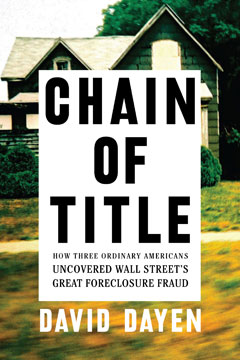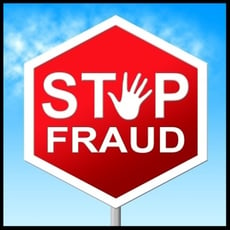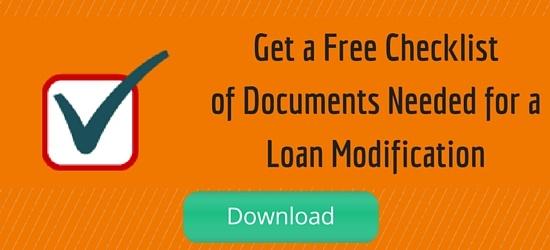 Not that many years ago, it seemed like you heard something about robosigning, foreclosure, and foreclosure fraud in the news all the time. These days, not so much. But it's not because foreclosure isn't a problem or banks aren't foreclosing on homeowners with fraudulent documents anymore.
Not that many years ago, it seemed like you heard something about robosigning, foreclosure, and foreclosure fraud in the news all the time. These days, not so much. But it's not because foreclosure isn't a problem or banks aren't foreclosing on homeowners with fraudulent documents anymore.
According to a recent article on theintercept.com by journalist David Dayen “Every day in America, people continue to be kicked out of their homes based on false documents.”
Dayen is promoting his new book called Chain of Title: How Three Ordinary Americans Uncovered Wall Street's Great Foreclosure Fraud, which is about victims of foreclosure who “exposed the mass production of false mortgage documents in courthouses and county records offices across the country.”
It's the latest in a long line of articles from the author telling the stories of homeowners who are being kicked out of their homes with fraudulent documents.
Why Banks Need to Fabricate Documents to Foreclose
During the housing bubble mortgages were bundled together, carved up, and sold to investors (which is called securitization) so carelessly that it became hard to tell who the real owner of a mortgage was.
After the bubble burst and people started defaulting on their mortgages by the millions, lenders needed to prove their ownership of a property so they could foreclose on it. But they didn't have the paperwork they needed to do that, so they fabricated it.
News came out in 2010 that employees at mortgage servicing companies were signing foreclosure documents on a massive scale without actually reviewing them, which is illegal. The process was dubbed robo-signing.
Popular documents to robo-sign are mortgage assignments, affidavits, and anything else needed to foreclose.
What Has Been Done About This?
 Some of the practices of mortgage servicers have been reigned in. Dual-tracking, which is considering a homeowner for a loan modification while pursuing foreclosure against them, is now restricted. And servicers are required to seriously consider loan modification applications and maintain adequate levels of trained staff.
Some of the practices of mortgage servicers have been reigned in. Dual-tracking, which is considering a homeowner for a loan modification while pursuing foreclosure against them, is now restricted. And servicers are required to seriously consider loan modification applications and maintain adequate levels of trained staff.
There have also been multi-billion dollar settlements between the government and the largest mortgage lenders.
And there has been the occasional victory for individual homeowners. One Texas couple was awarded $5 million by a jury after Wells Fargo foreclosed on their home with robo-signed documents. But cases like that are few and far between.
But the fraud continues and is often mind-bogglingly blatant, sloppy, and just lazy. This year in Dade County, Florida, HSBC tried to foreclose on someone using a mortgage assignment supposedly from 2012 from Freemont Investment and Loan. But there's just one problem: that company was liquidated in 2008. The judge dismissed the foreclosure case saying the assignment was fake and HSBC didn't have the standing to foreclose.
Protecting Your Rights And Home
If you're in foreclosure you may be wondering if your bank is using fraudulent documents against you. It depends on what type of loan you have and when you took it out.
“It’s virtually impossible for a foreclosure case on a securitized subprime loan from the housing bubble era to NOT involve false documents,” Dayen says in his Intercept article.
If you think it's happening to you, you can try suing your bank like the Texas couple, but you'll probably need some very deep pockets to pay a litigation attorney. You can try proving that your bank doesn't have the standing to foreclose, like in the Florida case, but that isn't going to keep you out of foreclosure forever.
The only permanent solution that involves keeping your home is to find a way start paying your mortgage again, and a loan modification is the only hope many homeowners have to do that. A loan modification allows you to reinstate your mortgage with a lower payment by reducing the interest rate, stretching out the term to as long as 40 years, and/or reducing the principal.
Unfortunately, most homeowners who apply for a loan mod on their own are denied. Your odds of success can be improved if you work with an experienced professional. The best option would be a foreclosure defense law firm that offers loan modification assistance. If your bank is using fabricated papers to foreclose on you, your lawyer can use that to defend you from foreclosure while working for a loan modification as a permanent solution.
Foreclosure causes serious stress under the best circumstances. The unethical and illegal activity currently associated with it can make it even more frustrating. Taking advantage of the knowledge and experience of qualified lawyer can help you reduce your uncertainty and anxiety, assert your rights under the law, and get the results you want.
Image courtesy of Stuart Miles at FreeDigitalPhotos.net










